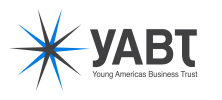UNIMA
Making accessible to all the detection and prevention of infectious diseases
Unima, a biotechnology family company has been chosen as YABT’s entrepreneur of the month. Unima participated in the first edition of TIC Americas and won the Best Business Process category with a stabilizer for vaccines used for livestock production. Nowadays, Unima team is developing a new, instant and low-cost technology that has the potential to revolutionize the market in the detection and diagnosis of diseases, such as VIH and tuberculosis, worldwide.
Unima’s name comes from the Purepecha indigenous dialect which means “unique” or “only one”. Unima proved to be a very unique gem as it is a family business working to revolutionize the biotechnology field. It first started in 2006, when three engineers, who happen to be brother, and the wife of one decided to start their own bio-company. In an interview with José Luis Nuño, he told us that his father has always been a hardworking man and encouraged him and his brothers to tap their potential by resorting to education. For the Nuño Brothers, education has been a major engine to move forward with Unima’s projects and get validation and international support at every phase of their start-up. Today, every team member holds at least one master degree in biotechnology.
In 2007, Unima started as a specialized business focused in the development of biotechnology products to improve the processes in the animal health sector. José Luis at that time worked for the Boehringer Ingelheim, a German pharmaceutical, and acknowledged the existing need of improving health in agricultural processes. Farm animals’ health affects the health of those people who consume meat, milk and eggs. By grasping this reality, Unima developed a stabilizer for poultry vaccines to reduce the risk of disease transmission. By participating in TIC Americas and Global TIC in Taiwan, Unima was able to validate its first product. Today, this stabilizer is sold in over 14 countries worldwide, including India, Japan and Brazil.
Unima jumped to the human health field and discovered the potential that has the diagnosis of infectious diseases, which nowadays represents a market of more than $9 billions. Consequently, Unima developed its newest project, Signostics, a rapid and inexpensive device that serves for diagnosis and epidemiological surveillance of infectious diseases. What is more, Signostics can detect infectious diseases, such as HIV or tuberculosis, without the need to resort to laboratory equipment and for less than $ 1 per test. The idea behind this is that workers from international agencies and organizations working in public health field can use it in the most remote areas in the developing world with only a lab-on-a-chip and a smartphone.
And how does it work? With a lab-on-a-chip, you can do different visual biological reactions with the same blood sample. Through the microchannels of the lab-on-a-chip, proteins and specific antibodies get printed on each lab-on-a-chip in order to generate those visual reactions. After analyzing the image using an smartphone application the result is displayed on the screen and automatically sent to a central server where the result is stored along its geographic location.
Unima succeeded in validating Siagnostics through the MassChallenge – an accelerating high-technology entrepreneurship of high impact in Boston – and 1776 Global Challenges Competition. Moreocer, Unima is already carrying out clinical trials of its new technology in Mexico and it expects to start testing Siagnostics in Africa by 2016. Several institutions, such as MIT and Partners in Health in the United States; ITESM, CICESE and ITESO in Mexico are supporting Unima in validating and scaling-up Siagnostics. Also, Unima has received funding from CONACyT in Mexico and Saving Lives at Birth program created by USAID, Grand Challenges Canada and the Bill and Melinda Gates Foundation.
In the long-term, Unima aims to support through its technology to governments, national health systems, nongovernmental organizations, hospitals, clinics and other agencies that are working in global public health issues or deployed in the developing world. In doing so, Unima hopes to increase the impact of their work in controlling diseases and epidemic outbreaks in a faster way and at a low-cost. Through its real time data analysis software, Unima aims to help decision makers to develop better strategies to counteract epidemic outbreaks in developing countries.
Unima Founder José Luis Nuño argued that innovation behind Signostics is the immediacy of the diagnosis of HIV and tuberculosis and the few resources needed to achieve this. In the coming years, Unima hopes to establish strategic alliances with organizations like the World Bank, the Pan-American Health Organization, the World Health Organization, among others.
When we asked José Luis about his experience in the first edition of TIC Americas, José Luis told us that the best souvenir he took from TIC Americas was to meet entrepreneurs from different corners of the world that open his team’s minds to conceive problems differently and create new business solutions. José Luis concluded the interview by asserting “the biggest entrepreneurs are those who are always prepared to find opportunities (…) as Luis Pasteur once said “the fortune just favors only the prepared minds.”

